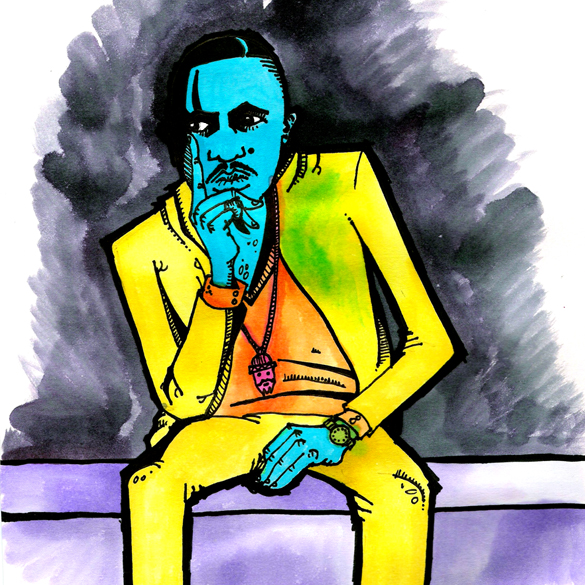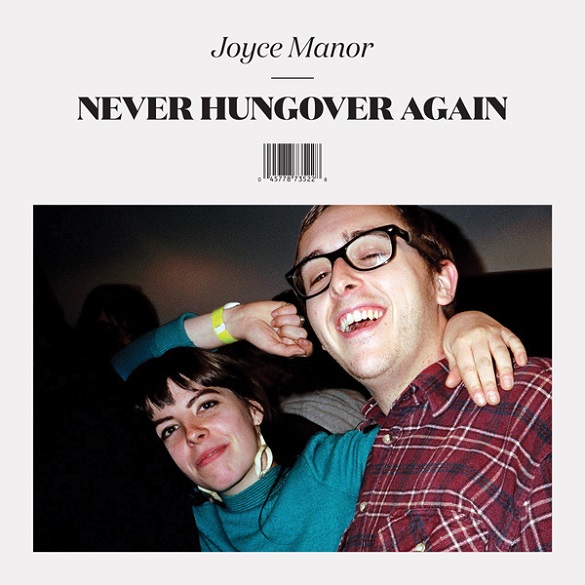“Before there was an audience to watch us / I assure you, there was a process.” Nas has had one of the longest and most tumultuous careers of hip-hop’s mainstream, and as the he claims above, he’s been loyal to his methodology regardless of his circumstances. Instead of running from or flaunting his wealth, he embraces the contradictions inherent in being a multimillionaire who still raps about the problems of life in the hood (“I been rich longer than I been broke, I confess”). Nas may be a legend, but he has never rested content with that status.
That said, I regarded Life is Good with a very healthy dose of skepticism when I first heard about it. When has Nas described life as good? Why is he posing like he’s Drake on the cover? Do I really want to listen to another hip-hop album about disillusionment with fame and fortune? Why is Rick Ross featuring on a single about faked personas? Fortunately, Nas himself seems to have dealt with these questions while making the album and answered them with subtle mastery.
“Accident Murderers,” the Ross featuring single in question, is a case in point. Sandwiched between two thematically cohesive and evocative verses from Nas is just about the plainest bologna verse that you’re likely to find from the Maybach Music boss this side of Deeper Than Rap. It’s delivered with his typical, unflinching bombast that is of course catchy as hell over the soulful No ID beat, but the lyrics feel recycled and vapid, and conclude with a promotion for his upcoming album. Compare that to the Queens artist, who paints a vivid scene and characterizes the killer, his intended and accidental victims in the space of the first verse with well-chosen details like “side of his mouth toothpick, one eyebrow raised.” He proves that he is indeed a “graphic classic song composer.” You feel that he’s talking about real people, with real disgust for their killers and a sincere sense of helplessness at not being able to change the environment he escaped.
Instead of weighing the song down though, Ross’s featherweight verse simply highlights how much depth there is to Nas, and how unafraid he is to embrace the unavoidable paradoxes and ironies of being a major-label rapper interested in making socially-conscious music. Like the guest verse on “Accident Murderers,” “Summer On Smash” is an undeniably thoughtless and formulaic song aimed straight at the charts. The annoying hook gives credence to Ghostface Killah’s assertion that Swizz Beatz shouldn’t be let anywhere near a mic, and Miguel reaffirms his irrelevance with a downright creepy third verse (“Freaks only baby / let me take pictures”). In the context of the album though, it’s a tolerable transgression as Nas again sandwiches the executive-pleasing shit between some truly resonant songs.
Just as his album is prone to these sorts of meaningless pop indulgences, Nas acknowledges that his life, despite his penchant to preach values and condemn the world’s ills, is plagued by addictions. “So many vices, habits / Mine of course, bad chicks,” as he says on “World’s An Addiction.” Not even his machine-gun flow can outrun the discontent of modern life, but at least it keeps going, and in this song manages to break through and totally arrest my attention. After painting portraits of the wealthy in discontent, he cries out, “Let go of the illusion, start some restraining.” Even if he’s prone to the same transgressions, he at least recognizes them as such and doesn’t believe in materialism’s mythical contentment.
“Who possesses the testicular fortitude / To blow away myths that’s a hindrance to all of you?” he asks on “Back When.” The song extols the virtues of telling about your real life, instead of perpetuating some fictional persona. The famous rappers, to whom he seems to be talking, all did this when they first started, but now the same mc’s “wink at other rappers,” knowing its just a a bullshit image they created to sell records and tickets. He even goes so far as to imply that they’re a part of some controlled state. “I wouldn’t be surprised if all their rides had federal plates.”
So, the question remains. When New York can fairly be described as “a big Riker’s Island,” is life good? When you’re a mediocre-at-best father-figure (“Daughters”) and unfaithful and now divorced husband (“Bye Baby”), is life good? When Amy Winehouse can only feature posthumously on a song about trying to escape “the noise in my head / the curse of the talented,” is life really good? I don’t think Nas really knows or, if he does, he doesn’t really seem to believe it. Either way, he deserves commending for remaining an auteur within mainstream hip-hop who, at the very least, is willing to give that question some thought. [B+]


